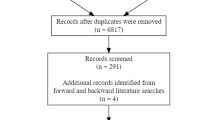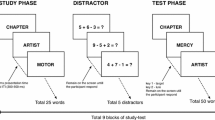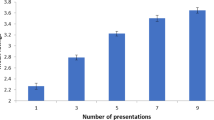Abstract
The mnemonic effect of insight refers to the situation in which experiencing an "aha" moment when solving problems could improve memory performance for both the question and its solution. The aha experience can be triggered either by external stimuli or by internal solution attempts, namely "induced" or "spontaneous" insight, respectively. Tests of the neural correlates of the insightful memory effect are typically conducted in induced insight paradigms. The neural mechanism of the mnemonic effect of spontaneous insight is unclear. In the present study, the mnemonic effect for spontaneous insight was examined by the event-related potentials (ERPs) technique and behavioral measures. Subjects were required to solve a set of Chinese verbal compound remote-associated tasks (CRA), and performed a recognition test 10 min later. The results showed that the spontaneous insight solution elicited a more negative deflection than did the non-insight solution before the button reaction (− 800 to − 400 ms) in the study phase. In the recognition test phase, items which elicited insight during study were recognized faster, compared with non-insight study items. And spontaneous insight solution elicited a more positive deflection than did non-insight solution in the time window from 400 to 700 ms after onset of the answer. Moreover, brain–behavior correlations revealed a relationship between N400 amplitude during study and later memory performance which revealed a double-dissociation between items solved with and without insight during study. The different predictions for recognition indicate that the encoding of spontaneous insight may differ from that of non-insight, suggesting that different encoding mechanisms may mediate the encoding of items and solutions found by insight versus non-insight.





Similar content being viewed by others
References
Auble, P. M., Franks, J. J., & Soraci, S. A. (1979). Effort toward comprehension: elaboration or “aha”? Memory & Cognition, 7(6), 426–434. https://doi.org/10.3758/BF03198259.
Beeman, M. J., & Bowden, E. M. (2004). Neural activity when people solve verbal problems with insight. PLoS Biology, 2004(2), 0500–0510. https://doi.org/10.1371/journal.pbio.0020097.
Schott, B. H., Torsten, W., Maria, W., Daniela, B. F., Kathrin, C. Z., Constanze, I. S., et al. (2011). The Relationship Between Level of Processing and Hippocampal–Cortical Functional Connectivity During Episodic Memory Formation in Humans. Human Brain Mapping. https://doi.org/10.1002/hbm.21435.
Bowden, E. M., & Jung-Beeman, M. J. (2003). Normative data for 144 compound remote Associate problems. Behavior Research Methods, Instruments & Computers, 35, 634–639. https://doi.org/10.3758/BF03195543.
Bowden, E. M., & Jung-Beeman, M. J. (2005). New approaches to demystifying insight. Trends in Cognitive Sciences, 9, 322–328. https://doi.org/10.1016/j.tics.2005.05.012.
Brown, C., & Hagoort, P. (1993). The processing nature of the N400: Evidence from masked priming. Journal of Cognitive Neuroscience, 5, 34–44. https://doi.org/10.1162/jocn.1993.5.1.34.
Craik, F. I., & Lockhart, R. S. (1972). Levels of processing: A framework for memory research. Journal of Verbal Learning and Verbal Behavior, 11, 671–684. https://doi.org/10.1016/S0022-5371(72)80001-X.
Cristofori, I., Salvi, C., Beeman, M., & Grafman, J. (2018). The effects of expected reward on creative problem solving. Cognitive, Affective, & Behavioral Neuroscience, 18(5), 925–931. https://doi.org/10.3758/s13415-018-0613-5.
Curran, T. (1999). The electrophysiology of incidental and intentional retrieval: ERP old/new effects in lexical decision and recognition memory. Neuropsychologia, 37(7), 771–785. https://doi.org/10.1016/S0028-3932(98)00133-X.
Curran, T., & Cleary, A. M. (2003). Using ERPs to dissociate recollection from familiarity in picture recognition. Cognitive Brain Research, 15(2), 191–205. https://doi.org/10.1016/s0926-6410(02)00192-1.
Danek, A. H., Fraps, T., von Müller, A., Grothe, B., & Ollinger, M. (2013). Aha! experiences leave a mark: Facilitated recall of insight. Psychological Research Psychologische Forschung, 77, 659–669. https://doi.org/10.1007/s00426-012-0454-8.
Danek, A. H., Fraps, T., von Müller, A., Grothe, B., & Öllinger, M. (2014). It's a kind of magic—what self-reports can reveal about the phenomenology of insight problem solving. Frontiers in Psychology, 5, 1408. https://doi.org/10.3389/fpsyg.2014.01408.
Du, X., Zhang, K., Wang, J., Luo, J., & Luo, J. (2017). Can people recollect well and change their source memory bias of “Aha!” experiences? The Journal of Creative Behavior, 51(1), 45–56. https://doi.org/10.1002/jocb.85.
Hagoort, P., Baggio, G., & Willems, R. M. (2009). Semantic unification. In M. S. Gazzaniga (Ed.), The cognitive neurosciences, 4th ed. (pp. 819–836). Cambridge, MA: MIT Press.
Hommel, G. (1988). A stagewise rejective multiple test procedure based on a modified Bonferroni test. Biometrika, 75, 383–386. https://doi.org/10.2307/2336190.
Jay, T., Caldwell-Harris, C., & King, K. (2008). Recalling taboo and nontaboo words. American Journal of Psychology, 121, 83–103. https://doi.org/10.2307/20445445.
Kizilirmak, J. M., Silva, J., Imamoglu, F., & Richardson-Klavehn, A. (2016a). Generation and the subjective feeling of "aha!" are independently related to learning from insight. Psychological Research Psychologische Forschung. https://doi.org/10.1007/s00426-015-0697-2.
Kizilirmak, J. M., Thuerich, H., Foltaschoofs, K., Schott, B. H., & Richardson-Klavehn, A. (2016b). Neural correlates of learning from induced insight: a case for reward-based episodic encoding. Frontiers in Psychology, 7(1408), 1693. https://doi.org/10.3389/fpsyg.2016.01693.
Köhler, W. (1917). Intelligenzprüfungen an Anthropoiden. Berlin: Royal Prussian Society of Sciences.
Kounios, J., Fleck, J. I., Green, D. L., Payne, L., Stevenson, J. L., Bowden, E. M., et al. (2008). The origins of insight in resting-state brain activity. Neuropsychologia, 46(1), 281–291. https://doi.org/10.1016/j.neuropsychologia.2007.07.013.
Liu, Y., Rosburg, T., Gao, C., Weber, C., & Guo, C. (2017). Differentiation of subsequent memory effects between retrieval practice and elaborative study. Biological psychology, 127, 134–147. https://doi.org/10.1016/j.biopsycho.2017.05.010.
Luck, S. J. (2014). An introduction to the event-related potential technique. MIT press.
Luck, S. J., & Gaspelin, N. (2017). How to get statistically significant effects in any ERP experiment (and why you shouldn't). Psychophysiology, 54(1), 146–157. https://doi.org/10.1111/psyp.12639.
Ludmer, R., Dudai, Y., & Rubin, N. (2011). Uncovering Camouflage: Amygdala Activation Predicts Long-Term Memory of Induced Perceptual Insight. Neuron, 69(5), 1002–1014. https://doi.org/10.1016/j.neuron.2011.02.013.
Luo, J., Du, X., Tang, X., Zhang, E., Li, H., & Zhang, Q. (2013). The electrophysiological correlates of scientific innovation induced by heuristic information. Creative Research Journal, 25(1), 15–20. https://doi.org/10.1080/10400419.2013.752179.
Luo, J., Niki, K., & Phillips, S. (2004). Neural correlates of the 'Aha! reaction'. Neuroreport, 15(13), 2013–2017. https://doi.org/10.1097/00001756-200409150-00004.
Mai, X. Q., Luo, J., & Wu, J. H. (2004). “Aha!” effects in a guessing riddle task: An event- related potential study. Human Brain Mapping, 22, 261–270. https://doi.org/10.1002/hbm.20030.
Maureen, R., Kevin, S. L., & Roberto, C. (2011). Level of Processing Modulates the Neural Correlates of Emotional Memory Formation. Journal of Cognitive Neuroscience, 23(4), 757–771. https://doi.org/10.1162/jocn.2010.21487.
Nie, Q. Y., & Luo, J. (2012). “Aha!” and “Haha!”: the common and distinct cognitive brain processes underlying insight and humor. Advances in Psychological Science, 20(2), 219–227. https://doi.org/10.3724/SP.J.1042.2012.00219.
Qiu, J., Luo, J., Wu, Z., Zhang, Q. (2006). A further study of ERP effects of “insight” in a riddle guessing task. Acta Psychologica Sinica 38, 507–514
Qiu, J., Li, H., Yang, D., Luo, Y., Li, Y., Wu, Z., et al. (2008). The neural basis of insight problem solving: An event-related potential study. Brain and Cognition, 68(1), 100–106. https://doi.org/10.1016/j.bandc.2008.03.004.
Reber, R., Perrig, W. J., Flammer, A., & Walther, D. (1994). Levels of processing and memory for emotional words. Swiss Journal of Psychology, 53(2), 78–85.
Rothmaler, K., Nigbur, R., & Ivanova, G. (2017). New insights into insight: Neurophysiological correlates of the difference between the intrinsic “aha” and the extrinsic “oh yes” moment. Neuropsychologia, 95, 204–214. https://doi.org/10.1016/j.neuropsychologia.2016.12.017.
Rugg, M. D., & Curran, T. (2007). Event-related potentials and recognition memory. Trends in Cognitive Sciences, 11(6), 251–257. https://doi.org/10.1016/j.tics.2007.04.004.
Schaefer, A., Pottage, C. L., & Rickart, A. J. (2011). Electrophysiological correlates of remembering emotional pictures. NeuroImage, 54(1), 714–724. https://doi.org/10.1016/j.neuroimage.2010.07.030.
Schooler, J. W., Ohlsson, S., & Brooks, K. (1993). Thoughts beyond words: When language over shadows insight. Journal of Experimental Psychology General, 122, 166. https://doi.org/10.1037/0096-3445.122.2.166.
Shen, W. B., Liu, C., Luo, J., & Yu, J. (2012). Brain perceived intuitively mental impasses in insight problem solving: An ERP study. Acta Psychologica Sinica, 44(7), 924–935.
Shen, W., Tong, Y., Yuan, Y., Zhan, H., Liu, C., Luo, J., et al. (2018). Feeling the insight: Uncovering somatic markers of the “aha” experience. Applied Psychophysiology and Biofeedback, 43(1), 13–21. https://doi.org/10.1007/s10484-017-9381-1.
Sternberg, R. J., & Davidson, J. E. (1995). The nature of insight. The MIT Press.
Ströberg, K., Andersen, L. M., & Wiens, S. (2017). Electrocortical N400 effects of semantic satiation. Frontiers in Psychology, 8, 2117. https://doi.org/10.3389/fpsyg.2017.02117.
Tik, M., Sladky, R., Luft, C. D. B., Willinger, D., Hoffmann, A., Banissy, M. J., et al. (2018). Ultra-high-field fMRI insights on insight: Neural correlates of the Aha! moment. Human Brain Mapping, 39(8), 3241–3252. https://doi.org/10.1002/hbm.24073.
Wills, S., & Chechile, T. (2000). “Aha” effects in the generation of pictures. Memory & Cognition, 28(6), 939–948. https://doi.org/10.3758/BF03209341.
Wu, X., Liu, Y., & Luo, J. (2018). The mnemonic effects of novelty and appropriateness in creative chunk decomposition tasks. Frontiers in Psychology, 9, 673. https://doi.org/10.3389/fpsyg.2018.00673.
Yonelinas, A. P. (2002). The nature of recollection and familiarity: a review of 30 years of research. Journal of Memory and Language., 46, 441–517. https://doi.org/10.1006/jmla.2002.2864.
Acknowledgements
We would like to express our great thanks to the Jasmin Kizilirmak, the anonymous reviewer and the editor, their comments and questions helped us improve this paper substantially.
Funding
This work was supported by the fund of the Top Young Talents Program of Hebei Province.
Author information
Authors and Affiliations
Corresponding authors
Ethics declarations
Conflict of interest
The authors declare that they have no conflict of interest.
Informed consent
Informed consent was obtained from all individual participants included in the study.
Ethical approval
All procedures performed in studies involving human participants were in accordance with the ethical standards of the institutional and/or national research committee and with the 1964 Helsinki declaration and its later amendments or comparable ethical standards.
Additional information
Publisher's Note
Springer Nature remains neutral with regard to jurisdictional claims in published maps and institutional affiliations.
Rights and permissions
About this article
Cite this article
Cui, C., Zhang, K., Du, X.m. et al. Event-related potentials support the mnemonic effect of spontaneous insight solution. Psychological Research 85, 2518–2529 (2021). https://doi.org/10.1007/s00426-020-01421-1
Received:
Accepted:
Published:
Issue Date:
DOI: https://doi.org/10.1007/s00426-020-01421-1




